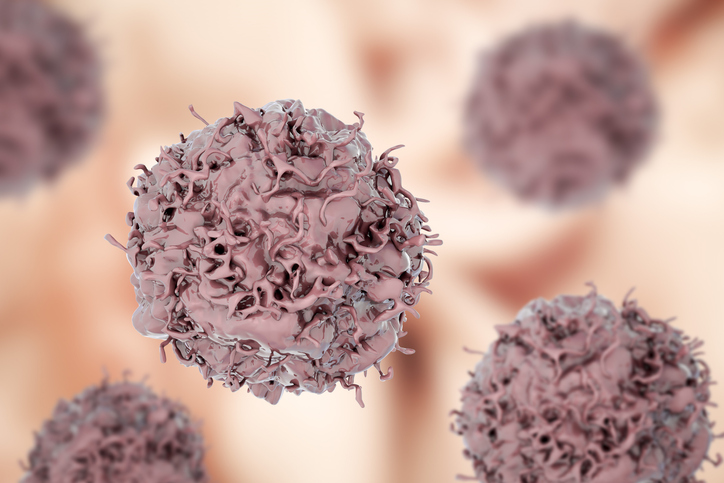
Cancer treatment continues to evolve with the identification of targets and genetic signatures that guide development of therapies addressing those disease-defining markers. Caris Life Sciences’ artificial intelligence-driven offerings diagnose cancer and help oncologists determine which targeted therapies to use. The company has launched two key offerings in the past 18 months. Now it has $494 million in IPO cash to support its precision medicine plans in the present, and to potentially expand its approach to other therapeutic areas in the future.
In an IPO environment that has been mostly shut to life sciences companies this year, Caris not only debuted on the public markets, it also upsized the deal. Investors showed strong interest in the Irving, Texas-based company, whose stock price closed Friday at $27.25, finishing its first week of trading up 29.7% from its IPO price. Caris’s shares trade on the Nasdaq under the stock symbol “CAI.”
Caris provides molecular profiling services, the analysis of patient samples in order to diagnose a cancer or to guide treatment decisions. That business is rooted in the 2008 acquisition of Molecular Profiling Institute, a company that was developing a blood-based diagnostic platform for early cancer detection, therapy selection, and disease monitoring, the company said in its IPO filing. Under Caris, this tissue-based molecular profiling technology became MI Profile, a technology platform that includes the components MI Cancer Seek, which is a companion diagnostic that identifies patients eligible for targeted therapies, and Caris Assure, the company’s universal blood-based whole exome/whole transcriptome sequencing technology.
Analysis of patient tissue produces a tremendous amount of cancer data. What has changed for Caris and other life sciences companies in recent years is the ability to process and analyze the data they generate. In a letter to investors included in the IPO filing, Caris founder and CEO David Halbert said next-generation sequencing and other technologies needed for personalized medicine did not exist when he started the company. Caris has benefited from advances in sequencing technology, cloud computing, and AI capabilities to power its expertise and insights in molecular biology. These technologies enable Caris to find answers to biological questions previously unanswerable due to limited or narrow information, he said. In completing 6.5 million tests on more than 849,000 cases so far, Halbert said Caris has generated over 13 quadrillion molecular datapoints and measured over 38 billion molecular markers.
“We are utilizing this tremendous amount of molecular information to pioneer the transition from intuitive medicine, where decisions for cancer patients are made based on prior experience or intuition, to empirical medicine, where decisions are based on the genetic make-up of each person’s disease,” Halbert said.
Cancer for Caris Today, Perhaps Chronic Disease Tomorrow
Caris makes money by providing molecular profiling services for clinicians and R&D services for biopharma companies. In the filing, Caris said its technologies are used by more than 100 companies including AbbVie, Merck KGaA, and Moderna. Caris also has partnerships with academic and research institutions.
Last November, the FDA approved MI Cancer Seek for use in six cancer indications as a companion diagnostic for certain targeted therapies, such as the Merck immunotherapy Keytruda and the Pfizer kinase inhibitor Braftovi. This offering launched commercially in the first quarter of this year. In the first quarter of 2024, Caris broadly launched Caris Assure for cancer therapy selection. Caris’s competitors in tissue-based molecule profiling include Tempus and Foundation Medicine, a subsidiary of Roche. In blood-based early cancer detection, competitors include Grail, Freenome, Guardant Health and Exact Sciences.
Molecular profiling made up the majority of Caris’s $412.2 million in revenue in 2024, which was a 34.6% increase over the prior year, the IPO filing shows. For the first quarter of this year, molecular profiling services accounted for $114 million in revenue, a 55.7% increase compared to the same period in 2024. Caris is not yet profitable, posting a $281.9 million net loss for 2024.
As of the end of the first quarter of 2025, Caris reported a cash position of $31.2 million. In April, the company raised $168 million in capital led by investment firm Braidwell, boosting its external funding haul to $1.86 billion raised since 2018. At the time of that financing, the company said the capital would support continued expansion of its technology platform. In the prospectus, Caris said it has no specific plan for any significant portion of IPO proceeds, other than general corporate purposes. But Halbert points to potential areas of expansion in his letter. He noted that Caris runs the same assay in both blood and tissue on every eligible patient sample, with the only changes to the test occurring at the bioinformatic level utilizing different algorithms.
“While we specialize in oncology today, we also believe that since we have designed the Caris Assure platform as a universal assay that runs on every coding gene in the blood, it can be utilized to identify alterations that drive other chronic disease states such as cardiovascular disease, neurological conditions, metabolic disorders, and many others,” Halbert said.
Signs of Potential Thawing in the Frozen Biotech IPO Market
Caris had initially planned to offer 23.5 million shares in the range of $16 and $18 apiece. The company then revised the price range to $19 to $20 per share. When Caris finally priced the offering on June 17, it was able to boost the deal to more than 23.5 million shares priced at $21 each, raising $494.1 million.
This year, a total of $2.5 billion has been raised across 13 healthcare IPOs through May, according to a recent report from partners DNB Bank and Back Bay Life Science Advisors. But most of those happened in the first two months of the year and half of the completed offerings were from commercial-stage companies. That’s important because it indicates that public markets investors are more risk averse and the IPO environment remains challenging for clinical-stage companies, the report states.
Seven of the 13 IPOs through May currently trade below their issuance prices. One of the exceptions is Asker Healthcare Group, a Sweden-based holding company whose subsidiaries are suppliers of medical products and equipment. Asker’s $888.1 million IPO on the Nasdaq Stockholm is the largest healthcare IPO of the year so far, according to the DNB and Back Bay report. That could bode well for commercial-stage Caris.
The stocks of Caris and tech-enabled insurance company Slide both saw gains beyond their IPO prices last week, which IPO research firm Renaissance Capital said indicates investors are embracing growth stocks. But Renaissance CEO and co-founder Bill Smith noted in his weekly newsletter that obstacles remain, such as uncertainty about tariffs, interest rates, and geopolitical conflict in the Middle East. Some of that uncertainty could clear after President Trump’s temporary suspension of country-specific tariffs expires on July 9, Smith said.
In its Beyond Borders report released last week, Ernst & Young said it expects IPO activity to remain muted for the foreseeable future. Referencing drug developers, the consultancy said it expects biotechs will continue seeking partnerships with big pharma companies and finding alternative funding sources as a way to continue development of their programs. But EY principals see signs that could help thaw the frozen biotech IPO market. In a briefing with journalists, EY Life Sciences Leader Arda Ural said Senate passage of President Trump’s budget bill, clarity on tariffs, and a potential Federal Reserve interest rate cut could all happen by the end of the third quarter of this year.
“If all those clear by Oct. 1, I think that’s a very different market that we’re looking at versus what we are living now,” Ural said.
Computer illustration by Getty Images






